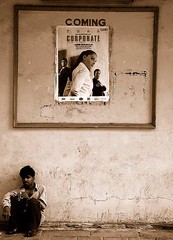By Kashif-ul-Huda, TwoCircles.net
 For some time now and especially after publication of Sachar Committee Report Muslims put much emphasis on acquiring modern education. In rapidly globalized economy of India, education was promised to be the key to a brighter future for Muslim kids.
For some time now and especially after publication of Sachar Committee Report Muslims put much emphasis on acquiring modern education. In rapidly globalized economy of India, education was promised to be the key to a brighter future for Muslim kids.
A recent study, however, finds that getting a call for interview can be reduced to as much as 33% for a candidate with Muslim names compared to an equivalent-qualified candidate with high caste Hindu name.
Study was lead by Chairperson of the University Grants Commission Prof. Sukhdeo Thorat and Paul Attewell of City University of New York. Beginning in October 2005 and lasting 66 weeks the study involved responding to job advertisements appearing in national and regional English newspapers with sets of resumes that were similar except for names. For each advertised position researchers sent applications with identical qualifications and experience that differed only in names. There was no explicit mention of caste or religion but names were easily identifiable as upper caste Hindu name, Dalit or Muslim names.
Only private companies were targeted and jobs that required little or no experience. In 66 weeks, researchers sent 4808 applications in response to 548 job advertisements. A call for interview or for a written test was considered a success for that application. Researchers were looking to see if chances of receiving an interview call are same for a high caste, a Dalit and a Muslim name.
Two statistical methods on the data resulted in a similar outcome. One method suggested that odds for a Dalit name is 0.67 and for a Muslim name is 0.33 to receive an interview call as compared to an equally qualified applicant with a high caste Hindu name. Another method gave the odds 0.68 and 0.35 for Dalits and Muslims, respectively. Both statistical models results are statistically significant which means that it is highly unlikely for this to happen by random chance.
The researchers concluded that “[h]aving a high-caste name considerably improves a job applicant’s chances of a positive outcome” adding that “on average, college-educated lower-caste and Muslim job applicants fare less well than equivalently- qualified applicants with high caste names, when applying by mail for employment with the modern private-enterprise sector.”
This is not surprising; Sachar Committee also found that private sectors had a dismal representation of Muslims. Sachar Committee recommended sensitizing private sector about diversity in their work force and suggested boosting Muslims recruitment through positive discrimination and affirmative action. Sachar Committee Report proposed the idea of an incentive based ‘diversity index.’
Sachar Committee Report also noted that “our data shows when Muslims appear for the prescribed tests and interviews their success rate is appreciable. This applies both to the public and private sector jobs.” But the present study suggests that any Muslim has about one third of a chance for landing that test or interview compared to a high caste Hindu.
Thorat and Attewell in their research article published in October 13th, 2007 issue of Economic and Political Weekly write that despite legal safeguards when a social group remains backward then it is blamed on group’s low level of education. These two who have been studying discrimination in United States and India states that discrimination is not acknowledged in a modern capitalist economy.
This study conclusively proves that there is discrimination in corporate India against Dalits and Muslims, with Muslims suffering the most.
“These were all highly-educated and appropriately qualified applicants attempting to enter the modern private sector, yet even in this sector, caste and religion proved influential in determining ones job chances,” researchers commented.

